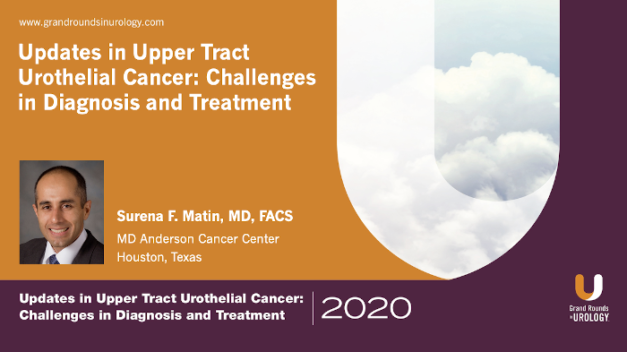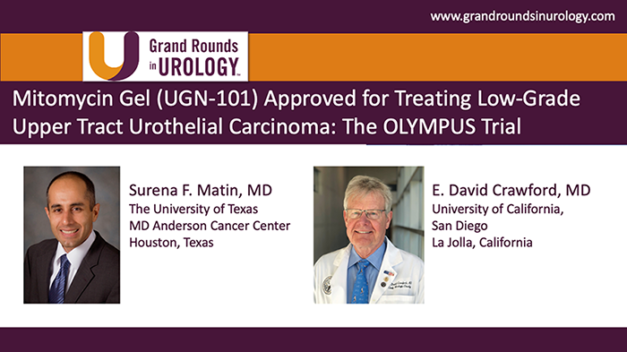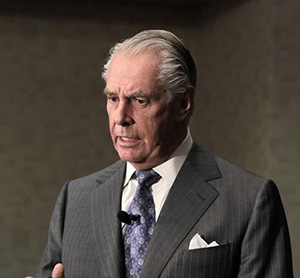Updates in Upper Tract Urothelial Cancer: Challenges in Diagnosis and Treatment
Surena F. Matin, MD, the Monteleone Family Foundation Distinguished Professor in the Department of Urology at MD Anderson Cancer Center, gives an overview of upper tract urothelial carcinoma (UTUC), comparing it to bladder UC and outlining risk factors, imaging options, and possible treatment paths. He posits that the lack of research on UTUC is a major reason for the challenges in diagnosing and treating the illness. When compared to bladder UC, UTUC has more imprecise staging options, more anatomical barriers for therapy, and unclear lymphadenectomy templates. Dr. Matin identifies UTUC risk factors such as tobacco, exposure to aromatic amines and arsenic, and also discusses classification issues related to patients with hereditary UTUCs. He then discusses how imaging is the backbone of staging and grading, but has limitations, recommending a CT chest scan or chest X-ray to rule out metastases, a cystoscopy to assess bladder capacity, and a ureteroscopy to assess tumor size. Dr. Matin concludes with a discussion of radical nephroureterectomy as a treatment option, stating that it is highly curative but at the cost of kidney function. He believes that adjuvant topical therapy could help solve the problem of treatment options but notes that there is not enough data to be certain of this yet.
Read More



